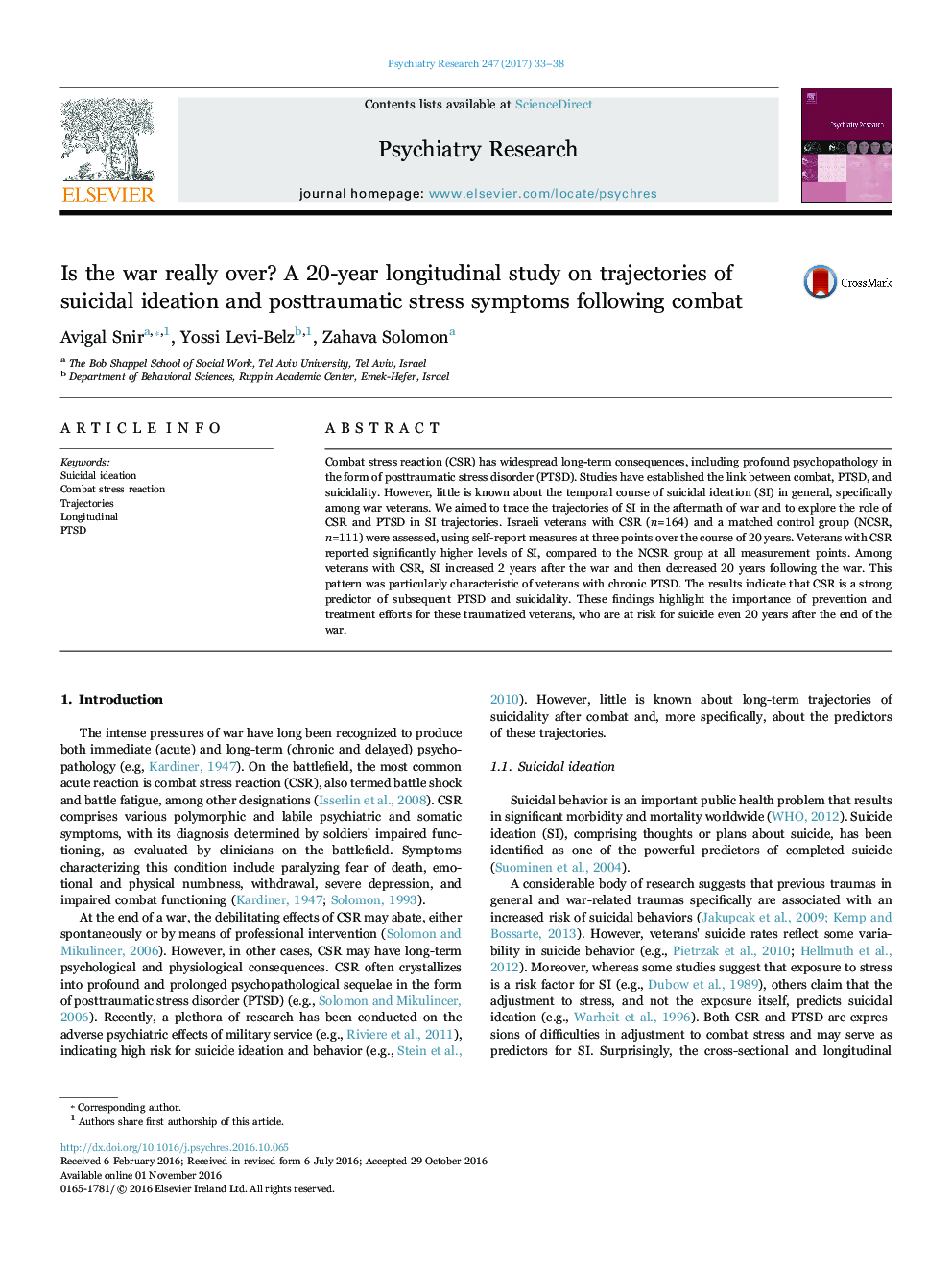| Article ID | Journal | Published Year | Pages | File Type |
|---|---|---|---|---|
| 4933637 | Psychiatry Research | 2017 | 6 Pages |
Abstract
Combat stress reaction (CSR) has widespread long-term consequences, including profound psychopathology in the form of posttraumatic stress disorder (PTSD). Studies have established the link between combat, PTSD, and suicidality. However, little is known about the temporal course of suicidal ideation (SI) in general, specifically among war veterans. We aimed to trace the trajectories of SI in the aftermath of war and to explore the role of CSR and PTSD in SI trajectories. Israeli veterans with CSR (n=164) and a matched control group (NCSR, n=111) were assessed, using self-report measures at three points over the course of 20 years. Veterans with CSR reported significantly higher levels of SI, compared to the NCSR group at all measurement points. Among veterans with CSR, SI increased 2 years after the war and then decreased 20 years following the war. This pattern was particularly characteristic of veterans with chronic PTSD. The results indicate that CSR is a strong predictor of subsequent PTSD and suicidality. These findings highlight the importance of prevention and treatment efforts for these traumatized veterans, who are at risk for suicide even 20 years after the end of the war.
Related Topics
Life Sciences
Neuroscience
Biological Psychiatry
Authors
Avigal Snir, Yossi Levi-Belz, Zahava Solomon,
